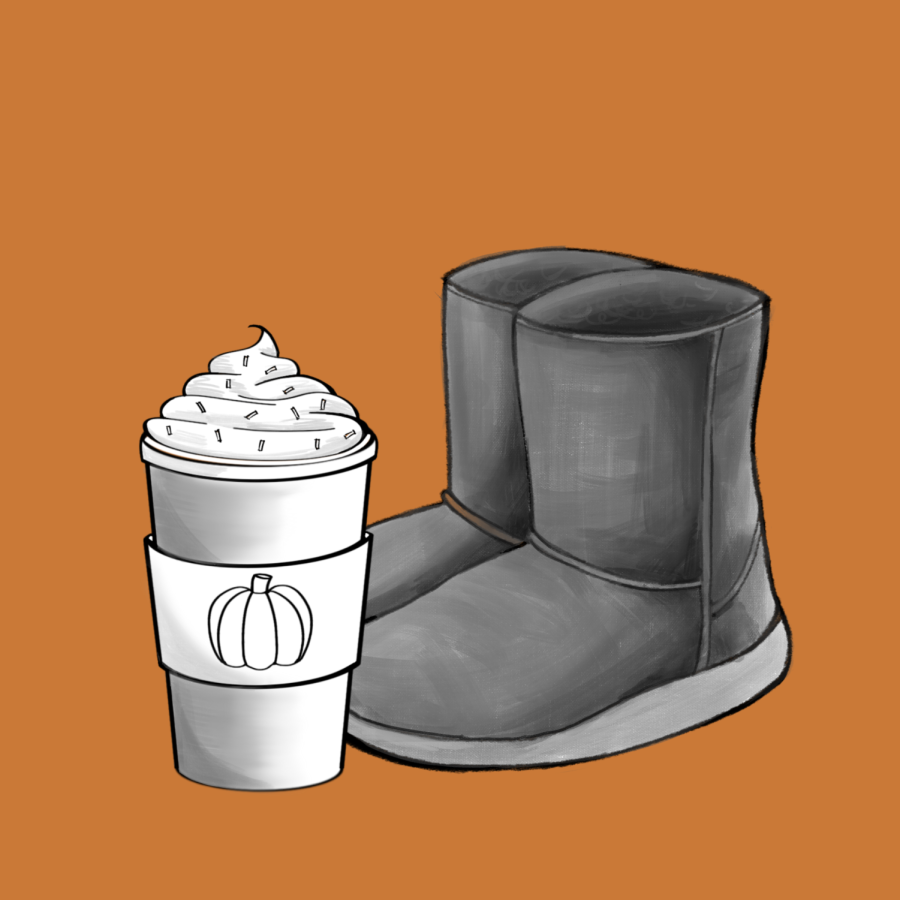Students should show respect, sensitivity for others’ enjoyment of ‘basic’ items
It’s that time of year again: the autumnal chill sets in, Halloween decorations adorn the front of every house and of course, the sweet smell of pumpkin spice lattes wafts through the air. The latter item, a simple coffee order though it may be, has sparked numerous debates in popular culture about whether it is truly deserving of its reputation as the quintessential fall drink. Many provocative food bloggers have unabashedly deemed the pumpkin spice latte overrated and “basic,” stating boldly that it doesn’t live up to the hype. Yet disdain for the pumpkin spice latte seems to stem from a deeper source than simply a dislike for the flavor. The hate is not solely due to the perception that pumpkin spice lattes taste bad, although everyone is certainly entitled to their own opinion on that matter; it is because of the fact that everyone, or at least everyone from a predominantly young, female population, seems to like them. Indeed, many so-called “basic” items are categorized as those products and trends often thought of as unoriginal, unexceptional and mainstream. Rather than frowning upon those who enjoy pumpkin spice lattes and other “basic” items, people should respect others’ tastes and preferences without ridicule and open themselves up to perhaps enjoying those experiences as well.
The issue of casual misogyny is not exclusive to pumpkin spice lattes. When young women make up the majority of a fanbase for anything, be it UGG boots, romantic comedies or Taylor Swift’s music, that item tends to be looked down upon with derision and written off as “low culture.” The very phrase “teenage girl” is often used derogatorily, as if to be a girl in her adolescence is to be, by definition, empty-headed and shallow. It could be argued that the “Fast & Furious” and “Twilight” franchises contain equal levels of superficial entertainment value, yet one undoubtedly carries more respect in popular culture than the other solely by virtue of its target audience. “Still a better love story than ‘Twilight’” is a common ironic comment on social media, though it is unlikely that “still a more sensible plot than ‘Fast & Furious’” has ever crossed someone’s feed. While it is within human nature to push back whenever the majority of the population tends to lean one way, this phenomenon seems to affect items beloved by teenage girls more than those enjoyed by any other demographic.
The knee-jerk reaction of many to look down on so-called “basic” items is not just reflective of wider cultural misogyny. It is a shame for those who deny themselves the opportunity to enjoy something just because the majority of other people do. Pumpkin spice lattes, while admittedly not the best Starbucks has to offer, bring a sense of warmth and nostalgia to their enthusiasts with every sip. Fairy lights and scented candles make every room feel cozier, while UGG boots are optimized for comfortable wintertime wear when the temperatures get low. One will be hard-pressed to find a greater joy in life than blasting the occasional Taylor Swift song at top volume just for the fun of it. In short, though they may not appeal to everyone, these “basic” items are meant to spark joy and comfort. No one deserves to be mocked for taking pleasure in something deemed “basic” just because many other people enjoy the same thing.
Of course, not everyone is required to like “basic” things. While widespread hatred of “basic” items in popular culture often contains disrespectful and even misogynistic undertones, some people simply don’t enjoy the admittedly sugary taste of pumpkin spice lattes or the cloying, manufactured aroma of scented candles. There are even valid criticisms of “basic” items that go beyond labeling them as “overrated” or “shallow:” for example, according to “Rolling Stone,” Taylor Swift has been reported to fly her private jet more than any other celebrity this year, emitting an estimated total of over 7,000 tons of carbon dioxide so far. Such concerns are rational, even necessary, in holding those individuals and corporations with money and privilege accountable. Still, just as someone can choose to dislike Taylor Swift because of her excessive contributions to the climate crisis or simply because they don’t enjoy her pop ballad appeal, another person can be just as sensible in appreciating her music for her lyrical prowess and catchy tunes. As long as they are not actively harming or disrespecting others, people deserve to have their tastes and preferences—whatever they may be—respected, regardless of someone else’s personal opinion. This time of year especially will have students flocking to their comfort items, which often include UGG boots, fairy lights and, yes, pumpkin spice lattes. As a result, many may feel the need to hide their affinity toward such items. The next time a student walks into their local Starbucks and feels ashamed about purchasing a pumpkin spice latte, they should remember that their order is just that: a coffee order. Drinking a pumpkin spice latte does not signify shallowness or conformity; it only represents an innocuous preference that should be respected by everyone. If something sparks happiness, enjoy it without reservation: People should never feel ashamed of what they find joy in—that’s a doctrine to follow year-round.
Your donation will support the student journalists of Henry M. Gunn High School. Your contribution will allow us to purchase equipment and cover our annual website hosting costs.

On staff since January 2021, junior Carly Liao is a Forum editor for The Oracle. Outside of the newspaper, she enjoys running, doing crossword puzzles...


